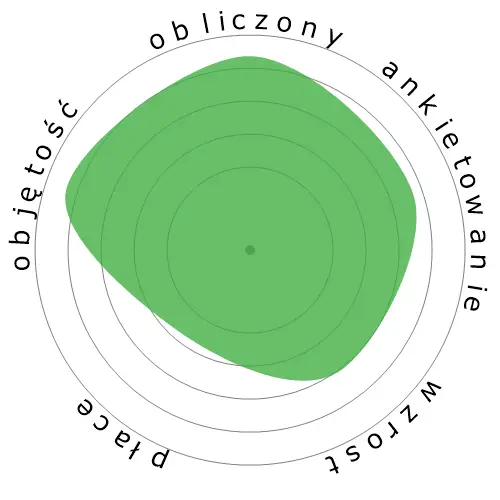Nauczyciele Przedszkola, Szkoły Podstawowej, Gimnazjum, Szkoły Średniej i Edukacji Specjalnej




Ludzie również oglądali
Obliczone ryzyko automatyzacji
Minimalne ryzyko (0-20%): Zawody w tej kategorii mają niskie prawdopodobieństwo automatyzacji, ponieważ zazwyczaj wymagają one skomplikowanego rozwiązywania problemów, kreatywności, silnych umiejętności interpersonalnych oraz wysokiej sprawności manualnej. Te prace często wiążą się z złożonymi ruchami rąk i precyzyjną koordynacją, co utrudnia maszynom naśladowanie wymaganych zadań.
Więcej informacji na temat tego, czym jest ten wynik i jak jest obliczany, jest dostępne tutaj.
Ta strona to strona kategorii, która obejmuje kilka zawodów. Aby określić wynik dla tej kategorii, obliczamy średnią ze wszystkich zawodów w niej zawartych.
Proszę odwołać się do indywidualnych stron zawodów, aby uzyskać więcej informacji na temat każdego zawodu zawartego w tej kategorii, możesz je zobaczyć na liście. tutaj.
Ankieta użytkownika
Nasi goście zagłosowali, że jest małe prawdopodobieństwo, iż ten zawód zostanie zautomatyzowany. To ocena jest dodatkowo wspierana przez obliczony poziom ryzyka automatyzacji, który szacuje 11% szansę na automatyzację.
Jakie są Twoje zdanie na temat ryzyka automatyzacji?
Jakie jest prawdopodobieństwo, że Nauczyciele Przedszkola, Szkoły Podstawowej, Gimnazjum, Szkoły Średniej i Edukacji Specjalnej zostanie zastąpione przez roboty lub sztuczną inteligencję w ciągu najbliższych 20 lat?
Wzrost
Liczba ofert pracy na stanowisko 'Preschool, Elementary, Middle, Secondary, and Special Education Teachers' ma spadać 0,1% do 2033
Całkowite zatrudnienie oraz szacowane oferty pracy
Zaktualizowane prognozy mają być dostępne 09-2025.
Płace
W 2023, mediana rocznej pensji dla 'Preschool, Elementary, Middle, Secondary, and Special Education Teachers' wynosiła 63 280 $, czyli 30 $ za godzinę.
'Preschool, Elementary, Middle, Secondary, and Special Education Teachers' otrzymali wynagrodzenie wyższe o 31,7% od średniej krajowej, która wynosiła 48 060 $
Płace z biegiem czasu
Objętość
Od 2023 roku zatrudnionych było 4 261 430 osób na stanowisku 'Preschool, Elementary, Middle, Secondary, and Special Education Teachers' w Stanach Zjednoczonych.
To oznacza około 2,8% zatrudnionej siły roboczej w całym kraju.
Inaczej mówiąc, około 1 na 35 osób jest zatrudnionych jako 'Preschool, Elementary, Middle, Secondary, and Special Education Teachers'.
Opis stanowiska pracy


Komentarze
Leave a comment
plus, the robots might even scare them
Tools like intelligent tutoring systems, virtual reality for immersive learning experiences, and automated administrative tasks can free up educators to focus on more critical aspects of teaching, such as emotional intelligence and critical thinking.
While AI's integration into education could enhance teaching and learning processes, a complete takeover is less about replacement and more about augmentation and partnership between human educators and AI technologies. The future likely holds a blend where AI supports education, enriching the learning experience without fully displacing the human touch that is crucial for student development.
Zostaw odpowiedź na temat tego zawodu